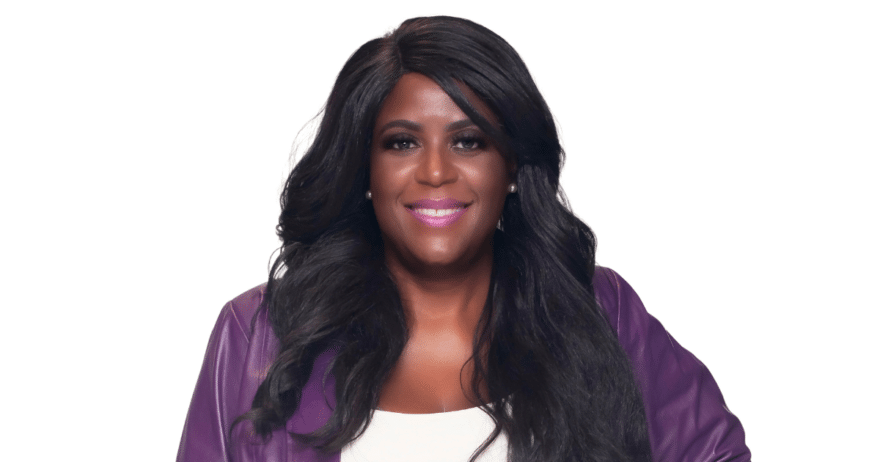June 24, 2024


According to a HealthCentral article, 70% of people experience imposter syndrome at some point in their careers. However, for Black women, the numbers are even more troubling. For Black women, dealing with imposter syndrome trap sets them up for isolation when they are promoted to leadership roles.
Impostor syndrome, a psychological pattern where individuals doubt their accomplishments and fear being exposed as a “fraud,” can be especially pervasive. Despite their success, many Black women in the workplace grapple with feelings of inadequacy and self-doubt. This phenomenon doesn’t just hinder professional growth; it creates a profound sense of isolation.
In this blog, we will delve into why imposter syndrome in the workplace causes Black women to feel isolated. And explore how career coaching can be a powerful tool in overcoming these challenges.
Understanding Symptoms of Imposter Syndrome
Impostor syndrome manifests as a persistent feeling of not being good enough, regardless of evident success and accomplishments. Symptoms include chronic self-doubt, fear of being “found out,” and attributing success to external factors rather than one’s abilities.
The psychological impact of constantly feeling inadequate, despite evident success, can be overwhelming. It’s a relentless cycle where achievements are dismissed, and any praise received feels undeserved. This mental battle often leads to burnout, anxiety, and depression. Leaving you feeling trapped in a web of impostor syndrome.
The Role of Societal and Cultural Pressures
Societal and cultural pressures significantly contribute to these feelings. Black women frequently navigate a landscape where they are underrepresented in leadership roles, face systemic biases, and contend with stereotypes. These external pressures can exacerbate the internal struggle, making the journey to self-acceptance and recognition even more challenging.
The lack of mentors and sponsors in the workplace further isolates Black women. Without these crucial support systems, they often find themselves navigating their careers alone, with no one to advocate for their advancement or offer guidance. This isolation is literal and profound, reinforcing feelings of inadequacy and exclusion.
Additionally, Black women can feel isolated due to differing belief systems, especially when they’ve been hired to “fix” something within an organization that is resistant to change. This role creates a dynamic where their presence is seen as a challenge rather than a contribution, further alienating them from their colleagues and the organizational culture.
Recognizing the Signs of Imposter Syndrome
What are the signs that you might be experiencing impostor syndrome? These can include a sense of never being good enough, a fear of being exposed as a fraud, and a tendency to attribute success to luck or external help rather than one’s capabilities.


Why Are Black Women More Vulnerable to Imposter Syndrome and Isolation?
Imagine standing at the edge of a vast and dense forest, knowing you need to navigate it to reach the other side. The path is riddled with obstacles, and the trail markers are scarce. This is the journey many Black women face in their professional lives, feeling vulnerable to impostor syndrome due to the unique challenges they encounter.
The Intersectionality of Race and Gender in the Workplace
The workplace can be a labyrinth of biases and stereotypes for Black women. The intersectionality of race and gender creates a double bind, where the compounded effects of discrimination are more pronounced. Black women often find themselves questioning their capabilities. Not because they lack skills or competence, but due to the societal stereotypes that suggest otherwise. Working in hostile environments where coworkers are consistently challenging your knowledge or authority, but no one else’s is exhausting. This internal conflict feeds the impostor syndrome, making them doubt their place in professional settings.
The Impact of Microaggressions and Systemic Bias
Microaggressions are like tiny, sharp pebbles in your shoes—irritating and painful over time. These subtle, often unintentional, expressions of bias can erode self-confidence. Comments like “You’re so articulate” or “You’re different from the others” might seem harmless but carry underlying messages of doubt about one’s abilities and belonging. These daily encounters contribute to a heightened sense of inadequacy and self-doubt, perpetuating the impostor syndrome.
The Role of Representation (or Lack Thereof) in Leadership Positions
Looking up and not seeing many who look like you can be disheartening. The lack of representation in leadership positions reinforces the feeling of being an outsider. When Black women do not see themselves reflected in higher echelons of power, it signals, albeit subtly, that their aspirations might be unattainable. This lack of visible role models can diminish their sense of belonging and increase feelings of isolation and self-doubt.
How Microaggressions at Work Contribute to Feelings of Inadequacy
Microaggressions at work, like constant pricks of a needle, create an environment where Black women feel perpetually scrutinized and underestimated. These small yet significant experiences accumulate, fostering an environment of doubt. For instance, being overlooked for projects despite qualifications, or being questioned about one’s expertise, can lead to internalizing these doubts and questioning one’s worth and abilities.
A Common Experience with Black Women in the Workplace Bias
Consider the story of Monica*, a senior manager in a tech firm. Despite her stellar performance, she often found herself second-guessing her achievements. Subtle comments from colleagues about her “fitting the diversity quota” and being repeatedly passed over for leadership training left her questioning her competency. These experiences are echoed by many Black women who, like Monica, face an uphill battle against both overt and covert biases.
The Imposter Syndrome Trap Isolation Effect
Isolation in the workplace can feel like being cast adrift in a sea with no land in sight. Impostor syndrome exacerbates this isolation, creating an emotional and mental toll that affects both personal well-being and professional performance.
The Emotional and Mental Toll of Feeling Like an Outsider
Feeling like an outsider can be emotionally exhausting. The constant need to prove oneself and the fear of being exposed as a “fraud” can lead to anxiety, stress, and burnout. Black women can often internalize these feelings, leading to a sense of loneliness and emotional exhaustion. This isolation can erode mental health, making it challenging to perform at one’s best.
The Impact on Productivity and Career Progression
Isolation and self-doubt can significantly impact productivity and career progression. When Black women feel isolated, they are less likely to seek out opportunities, network effectively, or advocate for themselves. This self-imposed limitation, driven by the fear of being seen as inadequate, can stall career growth and reinforce the cycle of impostor syndrome.
Signs of Workplace Isolation
Recognizing the signs of workplace isolation is crucial. These include withdrawing from team interactions, avoiding high-visibility projects, and hesitating to voice ideas. Emotional indicators like chronic stress, anxiety, and a sense of disconnection from colleagues are also red flags. Understanding these signs is the first step towards addressing and mitigating isolation.


Overcoming Imposter Syndrome with Career Coaching
Career coaching can be a beacon of light, guiding Black women out of the fog of imposter syndrome. Especially with a culturally sensitive coach who’s been through a similar journey. Through personalized strategies and support, coaching with a Black career coach empowers them to build confidence, establish their worth, and thrive in their careers.
Techniques and Strategies Used in Coaching to Build Confidence and Self-Esteem
Career coaching employs various techniques to counter imposter syndrome. Mindfulness strategies help challenge negative thought patterns, while affirmation exercises reinforce self-worth. Visualization techniques, where clients envision their successes, also play a crucial role. These methods collectively build a strong foundation of self-esteem and confidence.
The Importance of Mentorship and Support Networks
Mentorship and support networks are invaluable in combating imposter syndrome. Mentors provide guidance, share experiences, and offer reassurance, helping to dispel self-doubt. Support networks, whether formal or informal, create a sense of belonging and community, crucial for overcoming feelings of isolation and inadequacy.
Steps to Take for Recognizing and Celebrating One’s Achievements
Recognizing and celebrating achievements is vital in breaking the cycle of imposter syndrome. Career coaches encourage clients to keep success journals, where they document their accomplishments and positive feedback. Regularly reviewing these entries helps in internalizing successes and shifting the focus from perceived failures to real achievements.
What Specific Career Coaching Techniques Are Effective Against Imposter Syndrome?
Effective career coaching techniques against imposter syndrome include strength-based coaching, where the focus is on identifying and leveraging one’s strengths. Another technique is the development of a personal brand, which helps clients articulate their value and contributions clearly. Goal-setting and action planning are also critical, providing a structured approach to career advancement and self-improvement.
Success Stories of Clients Who Have Transformed Their Careers Through Coaching
Consider the journey of my client Angela*, a financial analyst who struggled with imposter syndrome. Through career coaching, Angela learned to recognize her unique skills and contributions. This helped her set achievable goals and celebrate her milestones. With mentorship and support, Angela transitioned from self-doubt to self-assurance, securing a promotion to a leadership role. Her story exemplifies the transformative power of career coaching in overcoming impostor syndrome and achieving professional fulfillment.
Breaking Free from the Trap
Imagine standing on the shore, gazing at a vast ocean. The waves of self-doubt and isolation may seem insurmountable, but with the right support and strategies, you can navigate these waters and reach the horizon of your full potential.
Recap of the Main Points
Throughout this blog, we’ve delved into the unique challenges that contribute to imposter syndrome and isolation in the workplace for Black women. We explored how the intersectionality of race and gender exacerbates feelings of inadequacy, amplified by microaggressions and systemic bias. The lack of representation in leadership positions further compounds these struggles, creating an environment where self-doubt can thrive.
We also discussed the profound impact of imposter syndrome on one’s emotional and mental well-being. The feeling of being an outsider not only affects personal confidence but also hinders productivity and career progression. Recognizing the signs of workplace isolation and understanding how they stem from imposter syndrome is crucial for initiating change.
Finally, we highlighted the transformative power of career coaching. Techniques such as cognitive-behavioral strategies, affirmation exercises, and the establishment of support networks can significantly reduce feelings of inadequacy. Success stories of individuals who have overcome imposter syndrome through coaching serve as powerful testimonials to the efficacy of these methods.
Seek Career Coaching to Overcome Imposter Syndrome & Isolation
If you find yourself trapped in the cycle of imposter syndrome, feeling isolated and doubting your worth, it’s time to take action. Career coaching with a culturally sensitive coach offers tailored strategies and unwavering support to help you recognize and celebrate your achievements. By working with a coach, you can build confidence, establish a strong sense of self-worth, and navigate your career with clarity and purpose.
Imagine having a trusted guide by your side, helping you map out your journey, setting realistic goals, and celebrating every milestone. This support can be the catalyst for profound personal and professional transformation. Don’t let impostor syndrome and feeling alone dictate your career path—seek career coaching and start your journey towards self-empowerment today.
Embrace Your Worth and Potential
Remember, you are not alone in this journey, and you don’t have to remain in the imposter syndrome trap. You have a choice to invest in career coaching that helps you to emerge stronger, more confident, and more successful. Embrace your worth and potential, for you possess unique skills and perspectives that are invaluable. Like a diamond formed under pressure, your experiences have shaped you into a resilient, capable, and extraordinary individual. But the road doesn’t have to be difficult your entire career!
Your career is not defined by the doubts that whisper in your mind but by the strengths you bring to the table. You have the power to break free from the impostor syndrome trap and create a fulfilling and impactful professional life. Stand tall, embrace your worth, and let your light shine brightly in every room you enter.
In the words of Maya Angelou, “You may encounter many defeats, but you must not be defeated.” Let these words be a reminder of your resilience and potential. Seek out the support you need, celebrate your achievements, and step boldly into your future, knowing that you are worthy, capable, and destined for greatness.


I’m an ICF Professional Certified Coach (PCC) and career coach for Twanna Carter Professional & Personal Coaching, LLC. I failed my first career transition from the military so badly, it took me the next 10+ years to build my confidence and recover. I know what it feels like to struggle with imposter syndrome and uncertainty about my worth in the workplace. It’s why I am dedicated to empowering Black women. Helping them navigate change and uncertainty by providing them with the tools and strategies they need to be successful. Schedule a free 30-Minute Career Solution Call today.
If you found this blog informative, buy me a cup of coffee
Curated Reads: Essential Books to Add to Your Personal Library
- Melaninated Magic: 180 Affirmations to Nurture Your Soul and Unleash Your Black Girl Joy by Twanna Carter, PhD
- I’m Not Yelling: A Black Woman’s Guide to Navigating the Workplace (Successful Black Business Women), Elizabeth Leiba
- Stop Overthinking: 23 Techniques to Relieve Stress, Stop Negative Spirals, Declutter Your Mind, and Focus on the Present (The Path to Calm) by Nick Trenton
- Influence: The Psychology of Persuasion by Robert B. Cialdini
- How to Win Friends and Influence People by Dale Carnegie
- High-Functioning Anxiety: A 5-Step Guide to Calming the Inner Panic and Thriving by Dr. Lalitaa Suglani
- Dare to Lead by Brene Brown
- The Memo, by Minda Harts
- Atomic Habits: An Easy & Proven Way to Build Good Habits & Break Bad Ones, by James Clear
- Worthy: How to Believe You Are Enough and Transform Your Life, by Jamie Kern Lima
- The Secret Thoughts of Successful Women: And Men: Why Capable People Suffer from Impostor Syndrome and How to Thrive in Spite of It – Valerie Young, EdD
Read my latest blogs…
- The Complete Guide to Career Transition Coaching for Black Women LeadersRedefining Leadership and Transition in the Modern Era For many Black women leaders, career transitions aren’t simply about moving from one role to another. They’re about redefining identity, purpose, and legacy. Whether stepping into a C-suite position, pivoting… Read more: The Complete Guide to Career Transition Coaching for Black Women Leaders
- 17+ Proven Steps for a Smooth Career ChangeWhy Changing Careers Is a Smart Move in Today’s World In today’s fast-changing job market, more people than ever are rethinking their career paths. Whether you feel stuck, unfulfilled, or simply ready for a new challenge, learning how … Read more: 17+ Proven Steps for a Smooth Career Change
- Why Career Uncertainty Silently Shrinks Earning Power of Black WomenUnderstanding Career Uncertainty in Modern Professional Life Career uncertainty isn’t just confusion about what to do next. It’s an emotional fog that clouds ambition, confidence, and self-worth. It can feel like being ready for more, yet unsure where… Read more: Why Career Uncertainty Silently Shrinks Earning Power of Black Women
- Why Black Women Fail at Career Pivots. Barriers and Pathways to SuccessThe Harsh Reality of Career Pivots for Black Women Right now, more than 300,000 Black women in the U.S. are out of work, a staggering figure that highlights the fragile state of career mobility and stability. While economic… Read more: Why Black Women Fail at Career Pivots. Barriers and Pathways to Success
- 7 Powerful Strategies to Brand & Thrive After a Layoff A Stark Reality. Over 300,000 Black Women Have Been Laid Off More than 300,000 Black women have been laid off since President Trump’s return to office. Driven by sweeping federal job cuts, weakened diversity and inclusion programs, and… Read more: 7 Powerful Strategies to Brand & Thrive After a Layoff
- Personal Branding for Black Women Who Are Invisible. A Transformative GuideThe Power of Personal Branding for Visibility Invisibility is exhausting and Black women know it better than anyone else.Every meeting, every boardroom, every industry hides countless stories of brilliance overlooked. Personal branding isn’t just about shining. It’s about… Read more: Personal Branding for Black Women Who Are Invisible. A Transformative Guide
- The Worker Bee Trap for Black Women Executives. How Over-performance Keeps Us Invisible in Corporate AmericaWorker Bee. The Hidden Trap Behind “Hard Work Pays Off” Growing up, many of us were taught the same lesson: If you work twice as hard, you’ll get ahead.As Black women executives, we carried that mantra into the… Read more: The Worker Bee Trap for Black Women Executives. How Over-performance Keeps Us Invisible in Corporate America
- Why Storytelling is Your Secret Weapon for the C-SuiteWhy Women Executives Need Strategic Storytelling As women executives, we know how vital it is to shape our narrative and own our stories. But let me be honest, storytelling is one of my weaknesses. Because I have social… Read more: Why Storytelling is Your Secret Weapon for the C-Suite
- 3 Branding Mistakes That Sabotage Successful Black Women LeadersWhy Personal Branding Matters More Than Ever Visibility Equals Value As a Black woman in leadership, your excellence is undeniable. But it isn’t always seen. Visibility, personal branding, isn’t just about being noticed. It’s about being recognized and… Read more: 3 Branding Mistakes That Sabotage Successful Black Women Leaders
- Executive Coaching for Black Women. Empowering Unstoppable SuccessWhy Executive Coaching Matters for Black Women In today’s fast-paced corporate world, executive coaching for Black women is more than a leadership development tool. It’s a catalyst for transformation. Despite being the most educated groups in the… Read more: Executive Coaching for Black Women. Empowering Unstoppable Success
- Build a Powerful Network They Say. But No One Tells You How! To build a powerful network is one of the most influential tools for professional and personal success, yet most people approach it incorrectly. You’ve probably heard people say, “It’s not what you know, it’s who you know.” But… Read more: Build a Powerful Network They Say. But No One Tells You How!
- 12 Tips to Successfully Changing CareersChanging careers is no longer the rare, risky leap it once was. It’s becoming a normal part of professional life. Whether you’re searching for more purpose, better pay, or a healthier work-life balance, knowing how to change careers… Read more: 12 Tips to Successfully Changing Careers








![Black women executive using storytelling with her team; Why Storytelling is Your Secret Weapon for the C-Suite; find Black executive story; executive coaching for Black women; best Black executive coach NY, best executive career coach near Maryland; find Black executive coach near TX; hire personal branding consultant for black women executives, branding audit services for black female founders, branding strategy package for women of color in business, personal branding coach for black women leaders, fix my executive brand [for black women], rebranding agency for black women-led companies, LinkedIn profile rewrite service for black female executives, corporate headshot photographer specializing in black women professionals, speaker branding package for black women keynote speakers, employer branding consultant for diversity & inclusion,](https://twannacarter.com/wp-content/uploads/2025/08/Why-Storytelling-is-Your-Secret-Weapon-for-the-C-Suite_Twanna-Carter-150x150-png.webp)
![successful Black woman executive standing next to a desk; 3 Branding Mistakes that Sabotage Black Women_Twanna Carter; how to recover from a branding mistake as a black female executive, rebranding strategy after a business mistake black women, fixing a weak personal brand as a woman of color in leadership, managing online reputation for black women executives, how to position myself as an industry expert [black woman], overcoming invisibility as a black woman in corporate america; building authority and credibility as a black female leader; branding for black women who want board positions; how to communicate my value as a black woman executive, personal branding for black women seeking c-suite roles,](https://twannacarter.com/wp-content/uploads/2025/08/3-Branding-Mistakes-that-Sabotage-Black-Women_Twanna-Carter-150x150-png.webp)












+ show Comments
- Hide Comments
add a comment